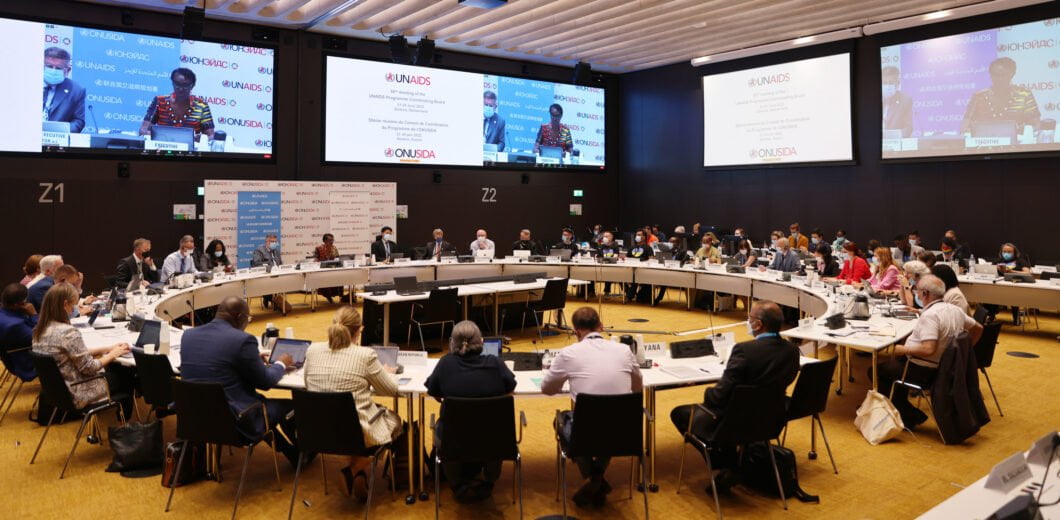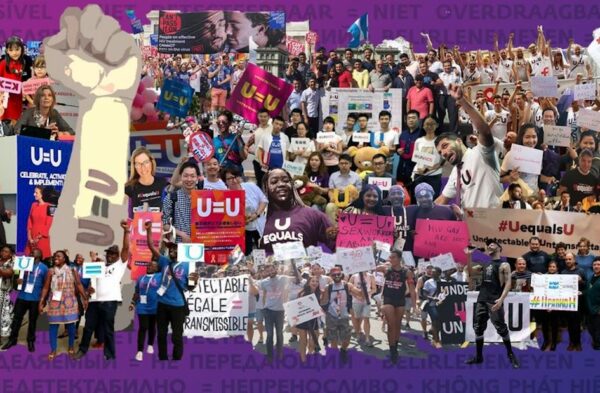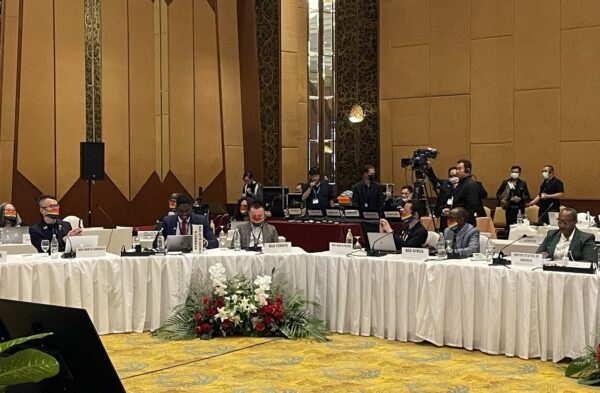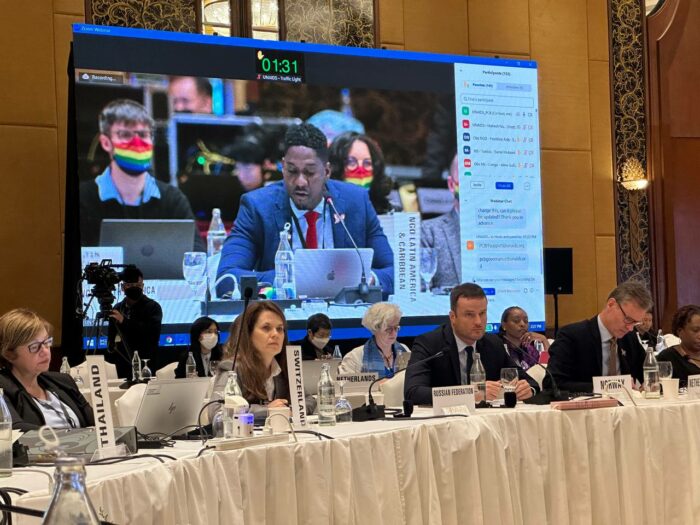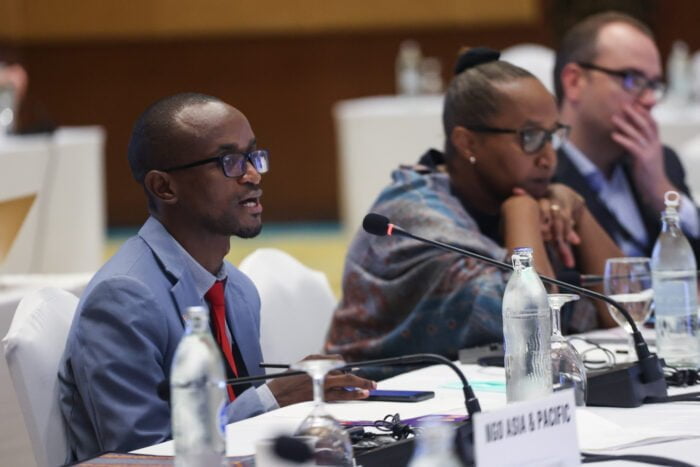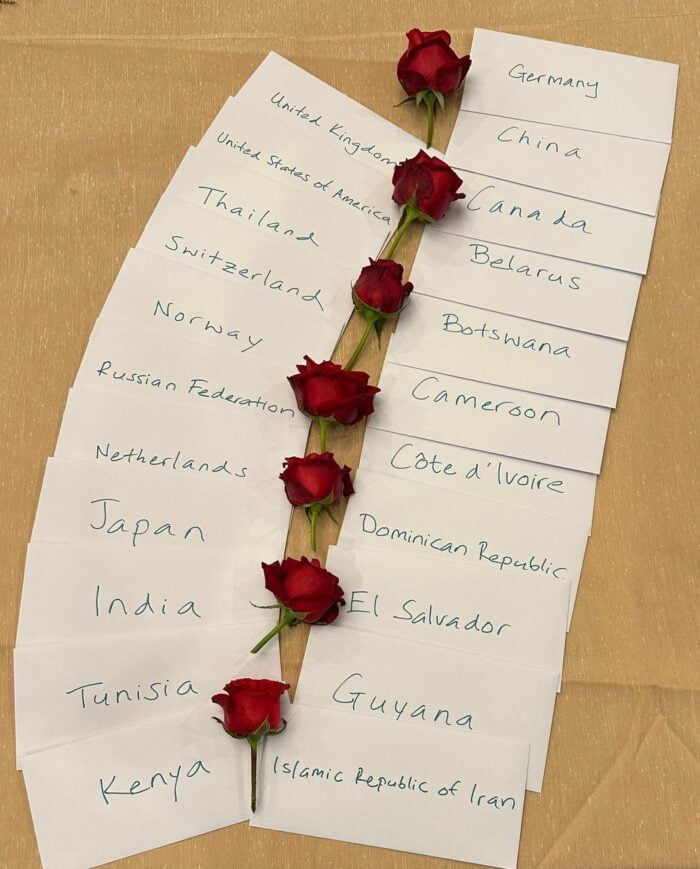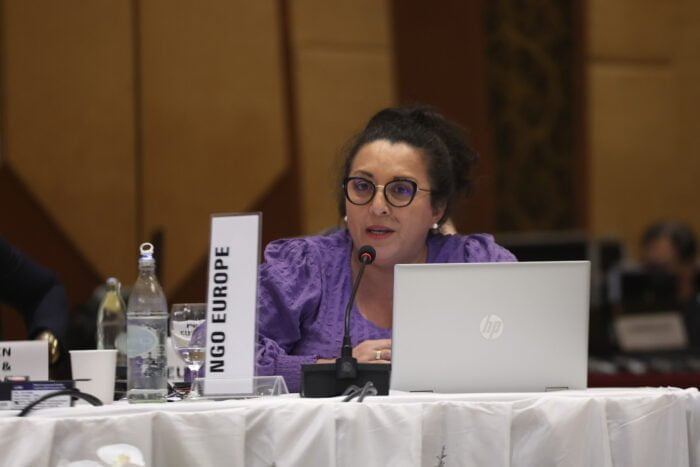Thank you Chair and esteemed members of the PCB. We thank civil society experts who served on the advisory for the NGO report and submitted case studies.
As a person with an undetectable viral load, it is with great honour to present this year’s NGO Report on Undetectable = Untransmittable = Universal Access (U=U=U): A Foundational Community-led Global HIV Health Equity Strategy.
Today’s presentation focuses on:
- Recognizing U=U as a global HIV health equity strategy and policy tool
- Leverage U=U as a SMART complement to the current Global AIDS Strategy
- Addressing the global inequalities gaps in U=U to the reaching of the global targets
Recognizing U=U as a global HIV health equity strategy and policy tool is immense:
U=U first gained the support of the global community in 2016, The science and benefits of U=U, as evidenced by large RCT trials HPTN052, large-scale longitudinal observational studies PARTNER 1 and 2, and population-specific studies such as the OPPOSITES ATTRACT Studies, has confirmed people living with HIV on effective treatment cannot pass on HIV sexually to others. This science is integrated into technical guidances, including the 2022 WHO Consolidated guidelines on HIV, viral hepatitis and STI prevention, diagnosis, treatment and care for key populations.
At the current juncture, the question we are asking is no longer about if U=U works, but how we can achieve U=U for all people living with HIV.
The community was the first to demand the science of U=U be widely shared, representing groups across 105 countries.
All people living with HIV, decision-makers and public health bodies, and the general population, need to know about the benefits of U=U as it is scientifically proven for implementation by countries
This past World AIDS Day, the world rallied to demand for solutions on how we can “Equalize” the dangerous inequalities hindering our collective progress. Thus it is encouraging to see countries recognizing the benefits of U=U in supporting them to advance the health and well-being for all people living with HIV.
The 2021 Political Declaration on HIV/AIDS recognized U=U as an integral component of the combination HIV prevention strategy and its use as an effective anti-HIV stigma intervention amongst people living with and affected by HIV.
Our report provides recommendations the Joint Programme, Member States, and Civil Society can leverage U=U as a foundational health equity strategy and policy instrument to reach the 95-95-95, 10-10-10, and 30-80-60 targets by 2025, and the SDG goal to eliminate HIV as a global public health threat by 2030.
We request everyone present to go beyond taking a business-as-usual approach by applying U=U as a SMART complement to the current Global AIDS Strategy to end inequalities. We must start with common clinical standards on viral load suppression and policy definition of U = U.
Through amplifying the anti-HIV stigma benefits of U=U, we can dismantle systemic and structural HIV stigma and discrimination, including efforts on criminalization reform.
All people living with HIV, especially young women and girls, transgender people, youth, key and priority populations, clinicians, allied health care providers, and the public can all benefit from learning, and leveraging U=U to dismantle inequities.
By linking U=U with Universal Access, we call on all stakeholders present to reconsider how we can reach universal access to affordable, quality life-saving HIV treatment, viral diagnostic and testing and access to differentiated care.
We seek commitment from all to work towards the ending of systemic and structural HIV stigma and discrimination and persecution of people living with HIV which continue to violate the human rights and dignity of people living with HIV.
As we move towards embracing U=U as a global HIV health equity strategy and policy tool, we must also apply community-led innovations we have gained through the global HIV and COVID-19 pandemics.
Incorporating U=U as a foundational community-led global HIV health equity strategy adds immense value to tackling global inequalities. The proposed decision points we have tabled will support Member States and the UNAIDS Joint Programme in fulfilling the global targets.
We thank members of the PCB for supporting our proposed decision points for the NGO Report.
